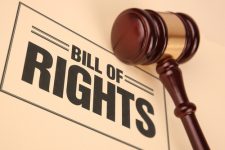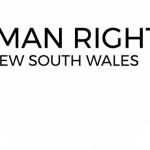It’s Time for an Australian Bill of Rights: An Interview with Senator Nick McKim

Gillian Triggs issued a stern warning when she finished her term as Australia’s Rights Commissioner earlier this year. Reflecting on her five years at the helm of the Australian Human Rights Commission, she lamented that “we are regressing on almost every front, whether it’s women, Indigenous, homeless, and of course, asylum seekers and refugees”.
Despite these issues being covered by various forms of media, nothing seems to have improved. If anything, recent changes in metadata retention, the extension of discretionary Ministerial powers, and extension of Australian deportation laws suggest that Trigg’s warning should be taken seriously.
This problem is compounded by the lack of protections for human rights under Australian law. Despite various proposals, Australia remains the only western liberal-democracy without some form of Bill or Charter of Rights.
However, Nick McKim, a Tasmanian Greens Senator and member of the Joint Parliamentary Committee on Human Rights, hopes to change that.
Mr McKim recently announced that he will be using his position on the committee to push for an inquiry into an Australian Charter of Rights. If accepted by the other committee members, he hopes that holding an open discussion with members of other parties will help to break the parliamentary impasse on rights protection – and ultimately pave the way for a piece of legislation that all parties can support.
To start, why is it troubling that Australia doesn’t have this Charter of Rights?
There’s a few points to make. Firstly, we’re seeing our rights eroded right now in a range of areas: we’re seeing legal rights eroded in the name of security and counterterrorism; we’re seeing digital rights eroded by the growth of Internet living, and advances in the way corporations harvest data; we’re seeing privacy rights eroded by things like metadata retention; we’re also seeing work rights and housing rights eroded.
We’re the only Western liberal-democracy that doesn’t have some form of Charter, or Bill, of enshrined rights, and with all that’s happening right now, we think the time’s right to have this conversation. That’s why we’ve said we want to refer this matter to a parliamentary committee, so that we can have an enquiry and basically having a conversation with the Australian people about this.
Senator Di Natale as argued for quite a broad Charter of Rights, one that includes “ including digital rights, economic rights, the right to a clean environment and conventional civil and legal rights.” What specific protections do you see the Greens pushing for?
We do think a Charter needs to be broadly based, and it should include those rights, but also things like rights for people living with disabilities, housing rights, and work rights.
If you want to look at something like environmental rights, it’s the Green’s view that people do have a right to clean drinking water, and air that’s not toxic to breathe – they are fundamental rights that people need. But there’s other environmental rights, like access to water for farmers facing challenges from fracking companies, who want to move in and compromise the future of some of Australia’s best farm land and water. So there’s a range of environmental rights, some of them are personal, and some of them are attached to industries like farming.
You said you intend to refer the Charter to the Parliamentary Joint Committee on Human Rights – what response do you expect you’ll receive from the other members, and the major parties?
We hope to have a discussion, because that’s what would happen if the Human Rights Committee decided to conduct an inquiry. At the end of the day, I think that having a discussion about a charter, which would include human rights, would be timely and logical the for a Human Rights Committee.
I’m yet to canvass the opinions of my colleagues on the Committee, so I won’t speak in anyway for them, but as I said I’m hopeful that there will be no resistance to having a conversation around a Charter of Rights. It’s up to them if they don’t want to support one after listening to the evidence that’s put forward to the committee, but as I said that I hope that there’s at least no resistance to having a conversation.
You’ve cited some recent legislation, such as meta-data retention, that a Charter of Rights might prevent. Is it right that it would do so, especially if the legislation is brought forward with a democratic mandate to do so?
Mandates are complicated things, and I’ve always had a view that just because someone votes for a political party it doesn’t necessarily mean that they support all the policies that that party has.
A Charter fulfills more than one function, it’s a declaration of rights, but it’s also a protection of rights. For a Charter to be effective it needs to be able to be used by people and by organisations in order to protect rights that they believe are under threat from government.
What can people in the broader community do to support the push for a Charter of Rights?
I really encourage people to keep an eye on the progress of our campaign. If the inquiry is initiated by the Human Rights Committee, I’d encourage people to actually put a submission in explaining why they support enshrining rights protection, along with what model they think would best achieve that aim, and what rights they’d like to see protected.
We want to hear from all Australians. There are a lot of lawyers who are experts in this area, but there is also a range of other groups and people who we think would be very interested in being a part of this conversation.
As far as possible, the idea of this approach is to try to take politics out of the discussion, and to allow for an organic conversation around how we best protect rights in Australia.
Given the strong community support for a Charter of Rights, why has there been so little momentum in Parliament to legislate for one?
Primarily, I think parliamentarians as a group have historically been reluctant to put checks and balances in place, and I can’t shake the feeling that the erosion of rights we’re seeing at the moment has a fair bit to do with this reluctance to legislate to enshrined rights in the past.
As I said, we are the only Western liberal-democracy in the world that doesn’t have some form of Charter of Rights or Bill of Rights, and the Greens believe that this is an issue of freedom and liberty, to enshrine people’s capacity to choose how they live their lives, so it’s on the basis that we’re moving forward.






